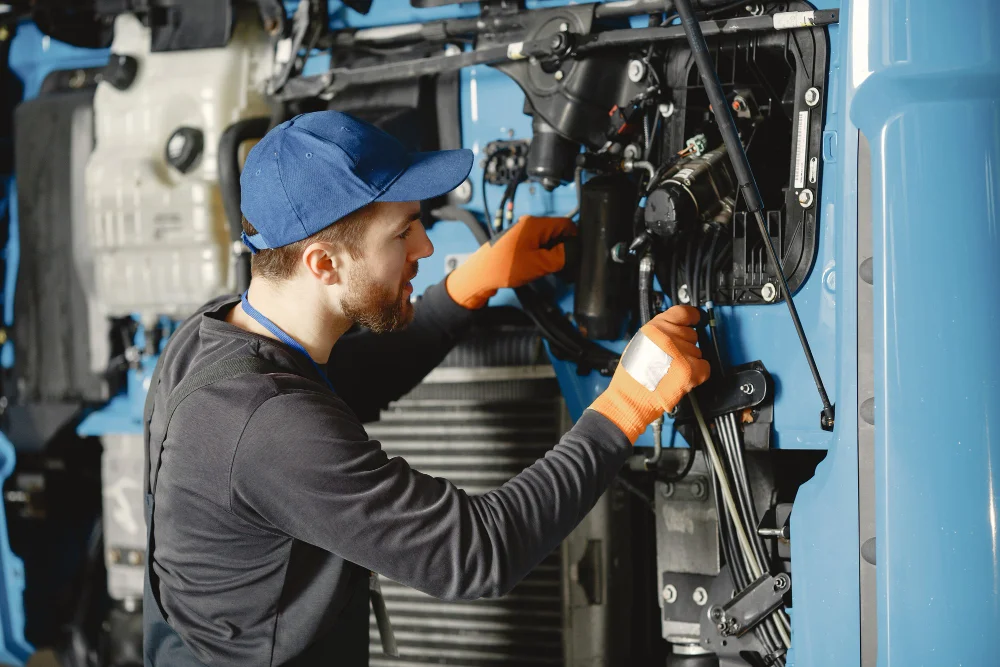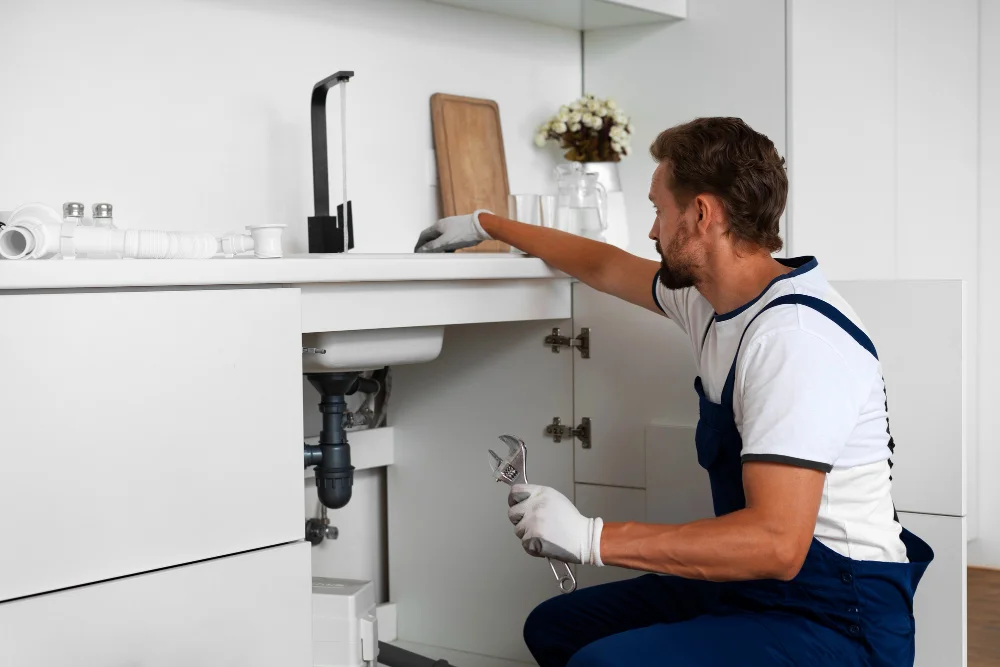Air compressors play a vital role in various industries, from manufacturing to construction. They power tools and machinery, making many tasks more efficient. However, like any mechanical equipment, air compressors require regular maintenance to ensure they perform optimally and have a long lifespan. Neglecting maintenance can lead to breakdowns, costly repairs, and downtime. We’ll explore seven essential tips for maintaining your air compressor to prolong equipment life.
1. Regularly Check for Air Leaks
Air leaks are a common challenge in compressed air systems that can significantly reduce efficiency. It’s crucial to perform regular and thorough air leak inspections to ensure your air compressor operates at its best. Start by creating a checklist of all potential leak points, including connections, fittings, hoses, and valves.
Use a soapy water solution to detect leaks effectively. Apply the soapy water to each connection point and observe closely. If you notice bubbles forming, it indicates a leak. Take note of the locations and severity of the leaks.
Once you’ve identified the leaks, address them promptly. Tighten loose connections, replace damaged fittings, or reseal areas where air is escaping. By eliminating air leaks, you’ll improve your compressor’s efficiency and reduce energy consumption and operating costs.
2. Change Air Filters
Air filters are a crucial defense against contaminants that can harm your air compressor’s internal components. Over time, these filters can become clogged with dust, debris, and particulate matter, restricting the airflow and diminishing the compressor’s performance.
To maintain peak efficiency, inspecting your air filters regularly is essential. Most manufacturers recommend filter replacement intervals based on usage and operating conditions. Adhere to these guidelines and replace filters promptly when necessary.
Choosing the right type of air filter is equally important. Consider high-quality filters designed to capture fine particles and contaminants effectively. Clean air filters ensure your compressor receives a steady flow of clean air, minimizing wear and tear on vital components.
3. Monitor Oil Levels
Monitoring oil levels is a critical maintenance task for air compressors that rely on oil lubrication. Low oil levels can increase friction and heat within the compressor, accelerating component wear and potentially causing catastrophic failure.
Establish a routine for checking oil levels, and make it part of your regular maintenance schedule. Ensure that the oil level falls within the manufacturer’s recommended range. If the oil level is low, add the appropriate type and grade to maintain the compressor’s lubrication system.
Changing the compressor’s oil at prescribed intervals is equally important. Over time, oil can become contaminated with impurities and lose its lubricating properties. Regular oil changes maintain the integrity of the lubrication system, ensuring smooth and efficient operation.
4. Drain Condensate
Condensate, a mixture of water and oil, naturally accumulates in compressed air systems as a byproduct of the compression process. Excess condensate can be collected in tanks and airlines, leading to several potential issues.
Firstly, condensate can cause corrosion within the system, potentially damaging critical components. Secondly, excessive moisture in the compressed air can compromise the quality of the air supply, affecting downstream equipment and processes. Finally, oil in condensate can have environmental implications, making proper disposal essential.
To address these concerns, installing a condensate drain system in your air compressor setup is essential. These systems automatically remove excess condensation at specified intervals, preventing moisture-related issues and ensuring the air remains clean and dry.
5. Inspect Belts and Hoses
Belts and hoses are critical components of your air compressor system, transmitting power and air between various parts of the equipment. Over time, these components can experience wear and tear due to the mechanical stress and environmental factors they encounter.
To maintain the longevity of belts and hoses, perform routine inspections. Look for signs of cracking, deterioration, or damage. Pay close attention to areas where hoses may be bent or kinked, as these stress points are prone to wear.
When you identify worn or damaged belts or hoses, replace them promptly. Ignoring worn components can lead to unexpected failures, resulting in downtime and potential damage to the compressor or connected equipment.
6. Maintain Proper Lubrication
Proper lubrication is essential for your air compressor’s smooth operation and longevity. Lubrication reduces friction between moving parts, minimizing wear and heat generation. Without adequate lubrication, components can suffer premature wear and damage.
Regularly check and top up oil levels as needed to maintain proper lubrication, following the manufacturer’s recommendations. Use the recommended type and grade of lubricating oil to ensure compatibility with your compressor’s design.
Additionally, consider using synthetic lubricants, which often offer enhanced performance and longer service life than conventional oils. Regularly inspect and replace oil filters according to the manufacturer’s guidelines to ensure clean and effective lubrication.
7. Schedule Professional Maintenance
While regular inspections and maintenance tasks are essential, scheduling professional maintenance from experienced technicians is equally crucial. Professional maintenance involves comprehensive checks, adjustments, and testing to ensure your air compressor is in peak condition.
Professional technicians have the expertise to identify potential issues that may not be apparent during routine inspections. They can perform specialized tests, such as vibration analysis and thermography, to detect emerging problems.
Technicians will also evaluate the overall performance of your air compressor, including its energy efficiency and output consistency. They can recommend adjustments and improvements to optimize your compressor’s operation.
Conclusion
Proper maintenance is the key to prolonging the life of your air compressor equipment. By regularly checking for air leaks, changing air filters, monitoring oil levels, draining condensate, inspecting belts and hoses, maintaining proper lubrication, and scheduling professional maintenance, you can ensure that your air compressor operates efficiently and reliably. CES (Complete Environmental Solutions) offers various air compressor supplies and industrial central vacuum systems to support your maintenance needs. Visit CES to explore their products and services and ensure your air compressor’s longevity. Don’t wait until issues arise—take proactive steps to maintain your equipment and enjoy uninterrupted productivity.


















